How Can I Avoid the Gurgling Sounds in my kitchen?
Table of Contents
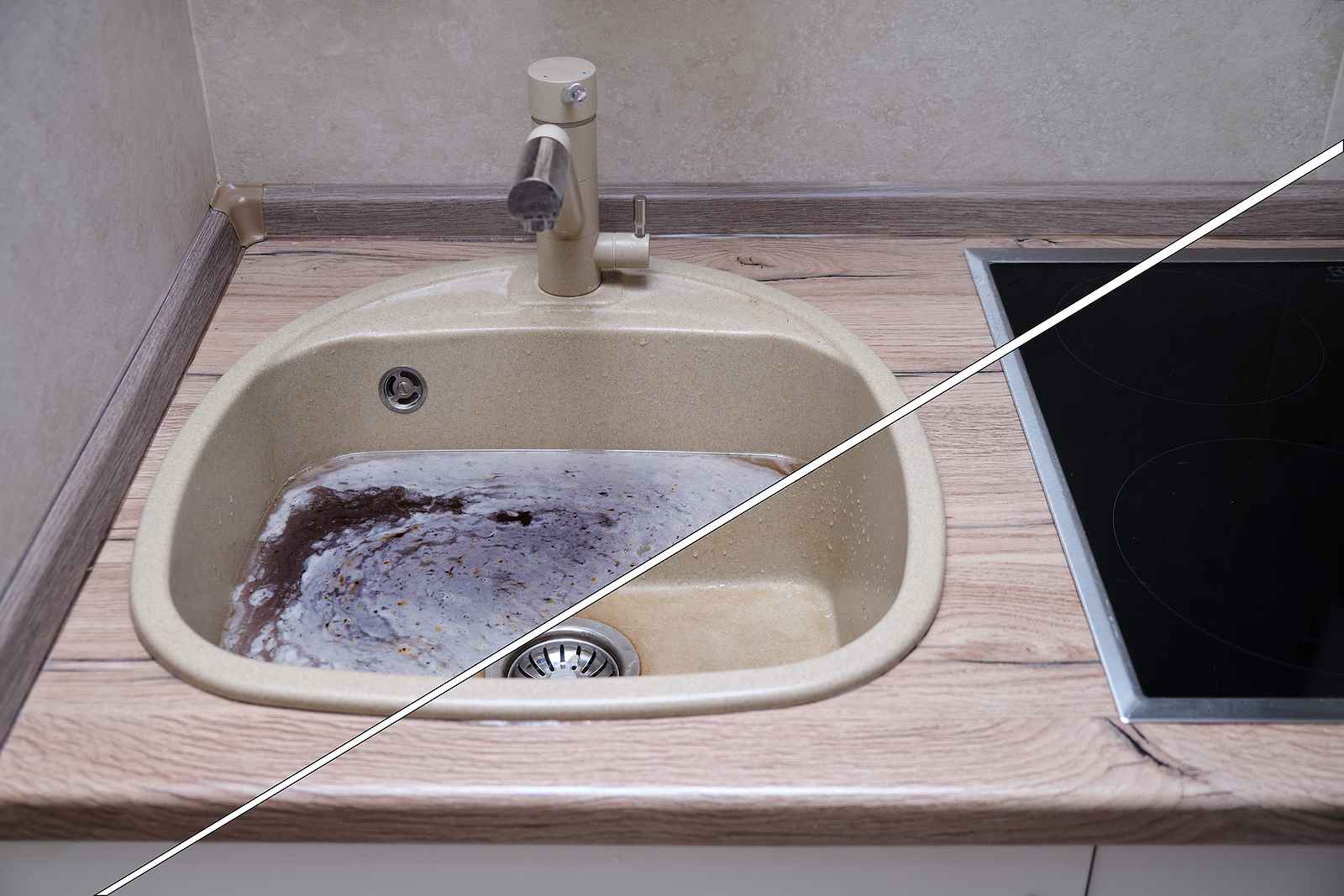
You may be concerned if your drains make an unusual gurgling sound. Often, they simply are a result of normal drainage. Yet, if you discover the noise getting louder or coming more often, you can take a few steps to rectify the issue.
Which Sink is Responsible for Making the Gurgling Sound?
Kitchen and bathrooms are among most used areas of your home. Sending food scraps, grease and oil down the pipes can lead to pipe blockage, increasing the danger of drain clogs. Before solving the plumbing problem, you must determine whether the noise originates from a single sink or several sinks. This helps reduce some time resolving the issue at hand.
What Causes the Gurgling Sound?
- A blocked vent pipe – A blocked vent can cause a gurgling sound. When the water does not drain properly, air fills within the vacuum causes, making the noise.
- Blocked garbage disposal – Debris and food can cause a gurgling sound due.
- Blocked bathtub drains- Hair accumulation in the drain is a common problem in bathroom sinks. If the clog is extremely deep, then there is a need to take help from the plumber.
- A shallow blocked drain- Another common problem with bathroom sinks is a shallow drain, which can be remedied by installing a sink strainer or a pop-up stopper.
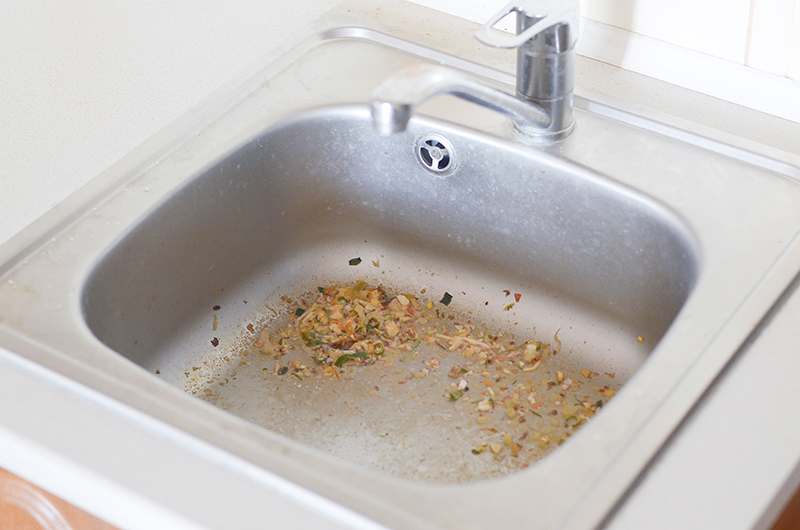
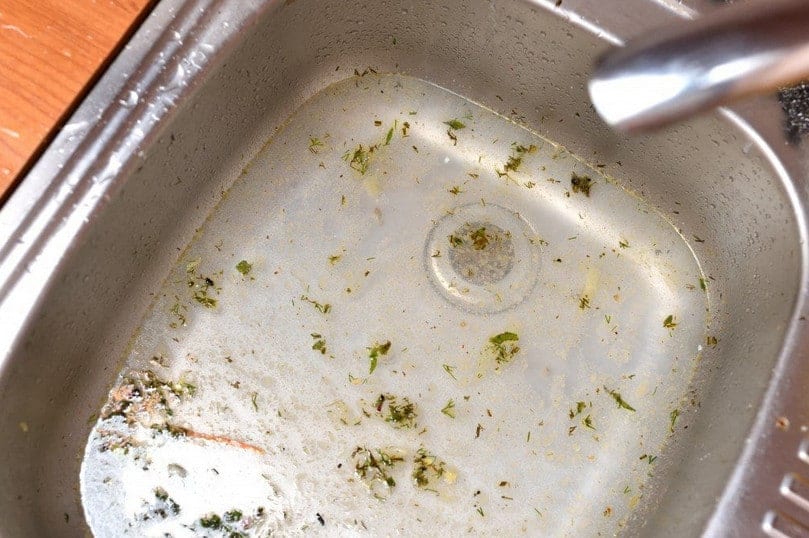
Tips for Cleaning the Blocked Drain
Here are some home remedies you can follow for cleaning the clogged drain.
Boiling Water:
Boiling water is good for unblocking the drains caused by conditioner, grease, oil, and debris. The reason is these materials have a low melting point, and the intense heat aids in breaking them up. To clear the clog, boil a pot of water and let it down the drain.
Use baking soda and vinegar:
Natural cleansers can be used to create a fizzing effect that breaks up drain clogs. Pour hot water into the drain, along with baking soda and vinegar, one cup each. Let it sit for 10 minutes, then add extra hot water. The combination of hot water and the natural cleanser can break up obstructions.
Caustic Cleaners:
Caustic cleaners are more effective in unblocking drains. They dissolve grease, fat, and oils, rendering them suitable for removing more stubborn obstructions. It’s vital that you read the instructions on the pack and air the area before beginning.
Plungers:
Plungers are a basic yet effective instrument for dislodging local obstructions. They function by producing a seal around the plug hole and create a vacuum effect that eliminates the blockage.
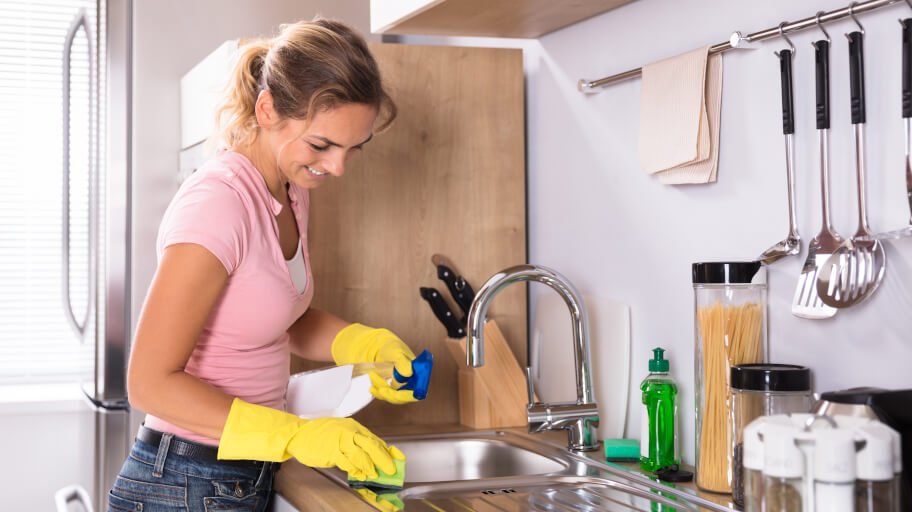
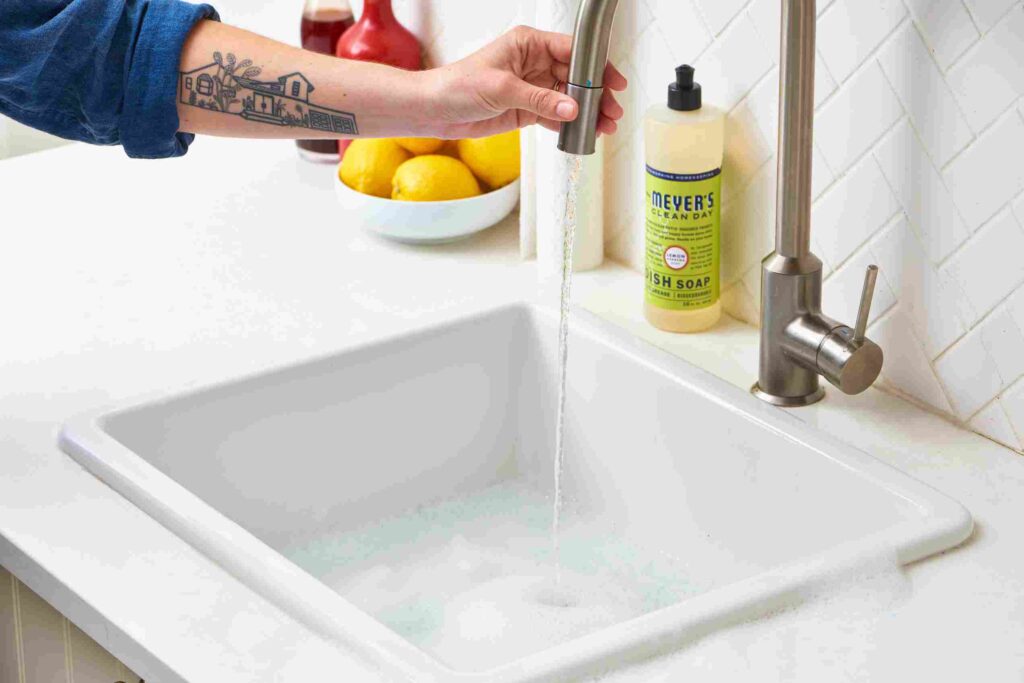
How can I avoid Blocked Drains?
- Cleaning your drains of hair, food crumbs, and other debris on a regular basis is beneficial. However, you should avoid using cleaning products that consist of chemicals. These might not work to clean the drain and may be bad for your pipes.
- Run water through the garbage disposal after every use, which will help in the removal of any food or debris that is left behind.
- Use a sink strainer to filter the debris and food.
- Do the inspection of your pipe on a regular basis.
Items That I Should Never Put Down in the Kitchen Drain:
The kitchen sink becomes a catch-all tray for plates, pots, and even leftover food. While strainers are excellent stopgaps, issues occur when certain foods are flushed down the drain. These are the things you never want to flush down the drain:
Grease: Cooking oil, butter, and fat originate from the grease. It can clot and solidify, especially if it’s been cooled down. Make careful to throw away oil and its potential sources properly.
Pits and Seeds: Drains can get clogged with grapefruit seeds, chia seeds, cherry pits, and even sunflower seeds. No matter how small, these pits and seeds can easily become entangled in sludge and cause a major issue.
Bones: Chicken bones can unexpectedly go down your drain and create a clog in your pipe. Once they do, they might form a blockage with other things that have got into your sink.
Pasta or Rice: You must remember that rice and pasta absorb water. They might expand and cause greater jams when they pass through your pipes.
